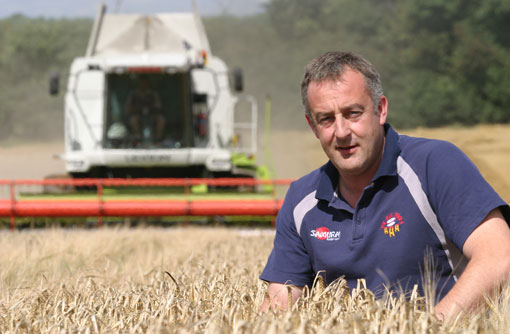Second wheats struggle for Richard Cobbald

At the time of writing we have about four days combining left, with a dry spell forecast, so we will hopefully not be that many days behind last year’s finishing date. This will be a good result for us considering the very late start and tough going we have faced.
All our oilseed rape has been drilled and sprayed with residual herbicide. It also had to receive two hits of slug pellets. Even operating within the pelletwise guidelines, I can’t help thinking that with all the wet weather we are going to be under severe pressure again over metaldehyde levels in the water, so I urge everyone to be very careful with slug pellet use, because we will be in big trouble if we start losing active ingredients in that armoury.
Yields in our first wheats have been reasonable, if not spectacular, but our big letdown has been Oakley as a second wheat. Usually such a reliable variety, it has now run its course, with very poor hectare litre weights. It will have to be replaced, somewhat with a heavy heart, as it has done us so well. The likely replacement in that second wheat slot is JB Diego.
I just wish the crops had yielded like the straw suggests they should have. I have never seen so much straw for so little grain, but at least the income from it will be very welcome.
Still, as I keep being reminded, us farmers will do ok, because the price for our produce is so high and, according to some sections of the press, we will be making big money while food prices go up. It’s called supply and demand and is not just dependent on the UK, it’s a world market. Why should we feel bad because prices go up?
Richard Cobbald is farm manager for West Wratting Park Estate near Cambridge. The 1,300ha of heavy soils grow wheat, oilseed rape, sugar beet and spring barley.
Read more from Richard Cobbald

